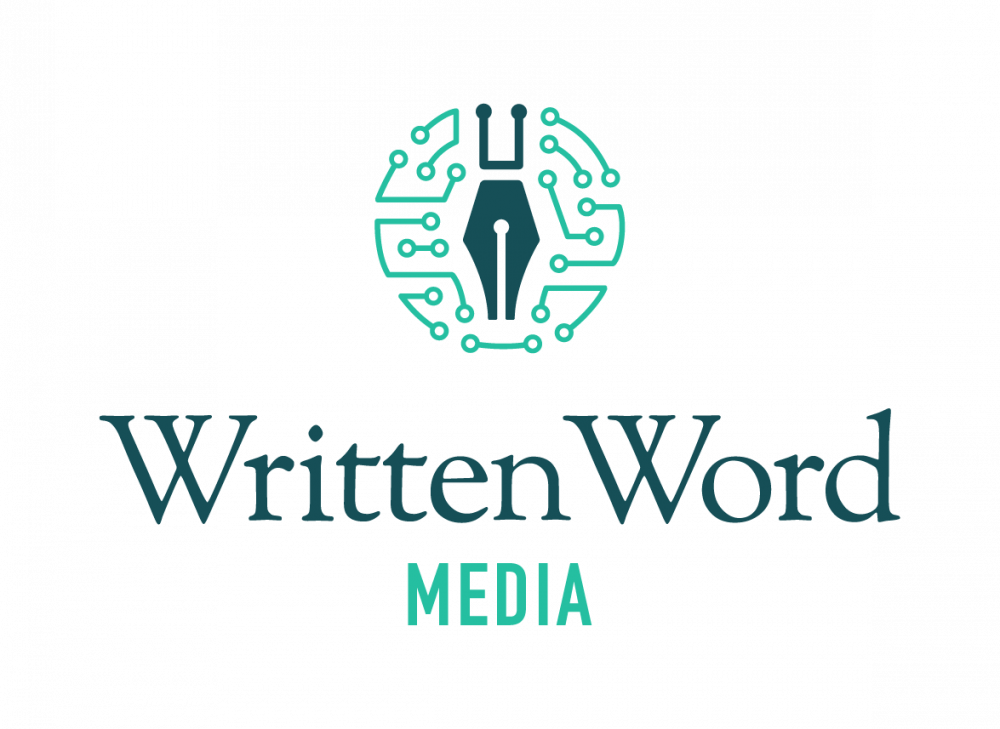
Ask the Editor is a column for your questions about the editing process and editors themselves. It’s a place to bring your conundrums and dilemmas and mixed feelings, no matter how big or small. Want to be considered? Learn more and submit your question.
This month’s Ask the Editor is sponsored by Written Word Media. The author marketing hub – Written Word Media makes effective book marketing easy for authors. Known for our five-star customer service, we have helped over 20,000 authors build their careers. Go to WrittenWordMedia.com to learn more and schedule your book promotion in 5 minutes.
Question
Sometimes a freelance editor’s marketing materials (e.g. website, Twitter bio, blog post) will say something like “I’ve edited nonfiction, fiction…and so on”—without naming the books or authors they’ve edited. Or, sometimes I’ve seen editors (and coaches and consultants) show testimonials, blurbs, and books they’ve worked on and/or edited, but none of these represent “work.” Showing a book cover but not clarifying the editor’s role doesn’t help: Did they do substantive or basic editing? Did they help with structure, voice … something else?
For a book, how can an editor show an author what the work involves and how they convey their thoughts/recommendations/suggestions? Does an editor’s work involve notes, lists, track changes, or page rewrites? It would help to know how an editor sees the editor’s role and conveys it—and whether the editor can show examples of their work.
What happens if an author asks a freelance editor (before contract) to show before-and-after examples of the editor’s work on a prior project? Or, would editors be willing to provide testimonials or blurbs that share specifics? It would help to see a list of books an editor has edited, along with the editor’s role (e.g., substantive, basic). Can authors ask for these kinds of detailed references?
—Early AM Writer
Dear Early AM:
I have to confess, my first reaction to this question was a big Noooooooooooooo! Editing is such an intimate experience, a private conversation between author and editor, and the idea of letting someone else see that conversation feels pretty uncomfortable.
But then I started to wonder about why it feels uncomfortable. There are, I think, some pretty valid reasons—the most significant being an implicit (or maybe even in some cases explicit) expectation of confidentiality on the part of the writer/client. Edits can feel embarrassing (maybe because they can feel like “corrections,” even though that’s not really what they are); imagine, for example, if Jonathan Franzen’s editor let slip how Franzen is always mixing up “who” and “whom.” (I am sure he is not, and anyway, that’s a very, very tiny part of what editors do, but maybe you get my point.)
But then I started thinking, well, so what? Maybe edits shouldn’t be embarrassing; they’re just part of the process. That’s why there are editors! Intimacy can be productive, but can it also foster a kind of secrecy that isn’t ultimately helpful? Would it be a better world if the work of editing were more transparent? Maybe!
Of course, this is a balancing act, in the same way that more transparency, generally, about mental health issues—destigmatizing therapy, for example—is probably a good thing for people, generally, but asking therapists to share transcripts of all their sessions wouldn’t be so great for individuals.
In fact, some editors do showcase samples of their work on their websites—often with some of the identifying information obscured. (Edited edits, as it were.) And, one hopes, only with authors’ permission.
But, just as reading a transcript of someone else’s therapy session would only tell you so much about how that therapist might help you with your particular issues, seeing an editor’s work on someone else’s manuscript won’t necessarily tell you what their edits on yours might look like. Sure, you’ll get a sense of their overall tone and approach, but that’s not quite the same as seeing notes on your own manuscript.
None of this quite answers your question, though. Yes, of course, if you’re considering hiring a freelance editor, you can ask for this kind of reference or work sample—but it’s probably not all that unusual if an editor doesn’t have it available. You could just limit your field to editors who do; that would be one way to narrow the field. But you should also feel free to ask questions before you hire someone. “If you edit my book, what can I expect from the edits? Do you work in track changes? Will you send a cover letter? What kind of feedback would you typically include? Do you normally address [whatever you’re hoping they will address]? Can we schedule a phone call after I’ve had a chance to look at your suggestions?”
Above all, you should try to be clear about your own expectations. If you think you’re hiring someone to do structural edits and they think they’re meant to focus on voice…probably that’s a recipe for frustration, all around. Far better to try to articulate your concerns and goals as specifically as possible, while keeping in mind that editing isn’t predictable, assembly-line work, and a big part of what you’re hoping for when you hire an editor is a fresh perspective on your manuscript that might help you see it anew after seeing it through your own lens for probably a very long time.
Ultimately, even more helpful than seeing a sample of the editor’s work on another writer’s manuscript would be seeing a sample of the editor’s work on your manuscript. Happily, many editors will do a sample edit before taking on a book project—sometimes for free, or sometimes for a relatively small fee. (It’s obviously a little trickier to arrange for a sample edit on a shorter piece, but it’s not necessarily impossible.) You get the chance to see how the editor works, and more specifically how they would approach your project. After all, you don’t want an editor who just doesn’t get you or who doesn’t seem to be helping make your book better (whatever “better” means, in the context of your identified scope of work and particular publishing goals); if you don’t like the extent or tone or focus of the sample edit, you can continue your search for the perfect editor. And, on the other side of the relationship, the editor can get a sense of your manuscript and what kind of work might be involved before committing to editing the whole book; after all, no one wants to spend a ton of time working on a book that feels like a total slog, especially if they budgeted poorly for it. Transparency is good for everyone!
Wishing you best of luck with your search, and your book.
This month’s Ask the Editor is sponsored by Written Word Media. The author marketing hub – Written Word Media makes effective book marketing easy for authors. Known for our five-star customer service, we have helped over 20,000 authors build their careers. Go to WrittenWordMedia.com to learn more and schedule your book promotion in 5 minutes.
Hattie Fletcher is one of the co-founders of Short Reads, a free literary email featuring flash nonfiction. She is the former managing editor of Creative Nonfiction and True Story magazine.
Essays she has edited have been reprinted in The Best American Essays, The Best American Travel Writing, and The Best Women’s Travel Writing series and have been awarded the Pushcart Prize. She has also worked on books covering such topics as end-of-life care, personalized medicine, education, mental health, and parenting.


I was a freelance copyeditor for over 25 years. I always provided a free sample edit of up to a few pages. The sample edit also enabled me to set my per-word fee.
30 years as a developmental, freelance editor here — and I do NOT show samples except of the requesting author’s work. I do NOT expose my previous author’s confidentiality in any way.
I spent as much time as needed to carefully and fully explain my editing processes, what the author can expect to receive when the edit is complete, and what support is offered beyond the actual edit, such as gratis consults of any guidance given. Guidance that isn’t understood is difficult to apply.
I also take into account the author’s experience, their level of education (general and writing), the draft stage of their manuscript, and their expectations.
I would offer a list of published books by ‘my’ authors, but will caution the prospective client that the final book is representative of (most likely) several editors’ work.
I can see checking reviews of a published book or maybe even the prospective author contacting (on their own, I would not suggest this action) one of ‘my’ previous clients. I can also see holding the belief that, somehow, seeing a before and after snippet of a manuscript would validate my abilities to support them. But this would seem a waste of time, unless the prospective client is highly experienced, with several published books, and a very strong educational background — in other words, they possess a superior skill set that would allow them the ability to determine whether the considered editor was a ‘good fit’.
The ‘good fit’ idea hinges on communication – period. I am a ‘good fit’ for an author if we can share, brainstorm, imagine, and maintain a constructive thread of communication that enhances learning and productive progress in the work. We are a ‘good fit’ if I thoroughly examine their expectations for the results and the process.
I do not provide samples of my work with other authors, especially to do comparisons. Such a request/demand by prospective author client would be respectfully rejected.
I don’t mind that any author desires a way to validate an editor’s skills but in the world of developmental editing, does that author have ample skills to notice what changes have been made and why? Writing that I might make suggestions to could be historical fiction, when the author who wishes validation/confirmation has written a fantasy saga. There is no way to discern, from a comparative sample, the deeper purpose of developmental suggestions for rewrites.
So… I suggest all authors press forward on requesting a sample of their own work. This will give the most direction ‘comparison’ necessary, as the sample will define how well you and this editor can communicate — how well the editor presents themselves via their comments. And I do believe a sample of the requesting author’s work, say the first 2-3 pages, is doable at any editing level.
Thanks for this great article, Hattie! Wonderful, thoughtful message.
Thanks so much for the thoughtful response, and for sharing your experiences and advice as an editor!
I literally keyboard ‘scribbled’ my response and even skimming can see where fingers tripped over themselves. I’ll never type as fast as my mind gives orders, eh? :o))
I’ve forwarded the link to your article to some of my editor pals. Thanks again for sharing.
Clear and compelling explanation of why getting a sample edit–of an author’s actual manuscript–is invaluable…actually I always suggest it’s indispensable. I’m sharing this in my editorial newsletter–thanks, Hattie.
I also really like that the editors commenting here are the career editors–I’m a 30-year editor as well, and I think it’s telling that those who’ve been doing this the longest know the value of a sample, for both editor and author.